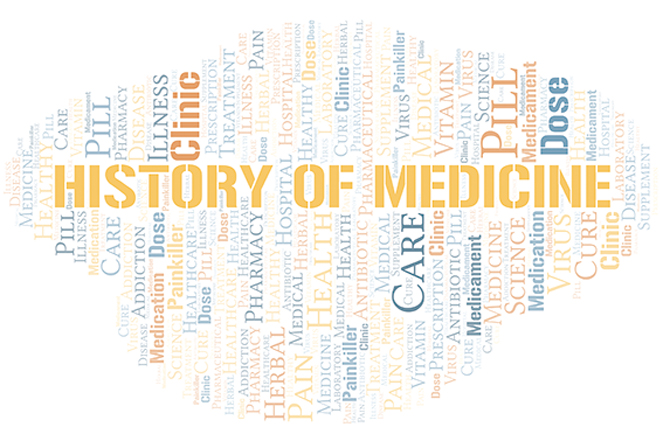Integrating history and medical science

History of medicine Photo: TUCHONG
Fundamentally, medicine is a science about human beings. No matter how advanced medical technology becomes, its subject remains humanity. Similarly, history is a science about humans, written by living persons. Both doctors and historians are concerned with the well-being of people and society, and both embrace humanistic values. However, the significant intersection between medicine and history has only emerged in the past century.
Prior to the 20th century, the history of medicine was largely a history of scientific and professional advancements in medicine written by doctors. It featured great discoveries and contributions of renowned doctors, with medical students being the target audience. At that time, the history of medicine seldom looked at political, economic, social, or cultural factors, and historians were not involved in its development. Interdisciplinary research between medicine and history gradually emerged in the West in the first half of the 20th century, with slow progress. It was only after World War II that the history of medicine began to flourish, profoundly influencing both disciplines.
Firstly, the history of medicine exerts a significant influence on medical science. It adds a humanistic dimension to medical science. In the early modern period, only affluent patients could afford a doctor’s visit, and patients held considerable influence over their own care. Back then, medical expertise was not the sole criterion for evaluating doctors. Elegance and wisdom were as important as professional skills. A doctor must be first and foremost a gentleman, acceptable to the patients they intended to serve. By the 19th century, with advances in medical technology, medical treatment was primarily delivered in hospitals, and the status of patients gradually declined.
The introduction of large diagnostic equipment ushered in a “technology-centered” era in medicine, further emphasizing the importance of hospitals. Given current progress in medicine, a greater emphasis should be placed on humanistic values. As a branch of the humanities, history can both guide the present by summarizing human experience and serve as reference for medical practice by examining the historical role of culture in clinical practice, medical research, and the contexts wherein diseases developed.
The history of medicine provides historical lessons for addressing medical conditions. Medical research and practice have always been conducted within political, economic, and cultural contexts. Therefore, historical measures to combat diseases continue to offer insights for the present day. For instance, before effective drugs and vaccines were invented, quarantine was an effective way to contain infectious diseases. However, the success of quarantine measures depended on the timing and manner of implementation, necessitating a reference to historical precedents. Similarly, public health measures, when enforced without regard for local and ethnic customs, may face resistance, even if they aim to protect public interest.
Secondly, the history of medicine contributes to historical studies by broadening the scope of historical research. Since the 20th century, historians have increasingly studied the history of medicine, transforming the way it is written and achieving several landmark results. These studies, no longer limited to describing the advances in medical technology, investigate how political, economic, social, and cultural factors influence clinical practice, medical research, as well as the understanding of diseases and their societal impacts from new perspectives. Their influence extends beyond medical education and practice.
The history of medicine also enhances the practical value of historical studies. Historians are increasingly emphasizing the contemporary relevance of their research topics, and the COVID-19 pandemic has highlighted the social value of the history of medicine. During the pandemic, scholars worldwide reviewed epidemics throughout history, the corresponding quarantine policies, as well as the invention and use of vaccines in an effort to learn from history.
Thirdly, the integration of medicine and history holds both academic and practical significance. Academically, it encourages researchers to raise questions that traditional disciplines may not have considered, integrate and transcend disciplinary-specific methods, and foster a creative practical awareness. Practically, interdisciplinary research allows researchers to reach a wider audience and benefit the general public. It can not only help ordinary people understand issues such as epidemics, substance abuse, and the spread of illicit drugs, but also mobilize various social forces to address them.
Of course, this interdisciplinary research is not without challenges. First, medicine and history differ in modes of knowledge production. Historians often prefer solitary research, with few incentives for and numerous constraints on collaborative work. Second, historians and medical researchers follow different rules and procedures when presenting knowledge claims. Third, disciplinary silos still exist. While historians focus more on the broader context wherein medical knowledge is produced, doctors believe that the history of medicine written by historians contributes little to medical education and practice. Currently, concerns about the lack of humanistic spirit in clinical medical education coincide with public concerns about the negative impact of science, which underlines the urgent need to enhance the public role of interdisciplinary research between medicine and history.
Zhao Xiurong is a professor from the School of History at Renmin University of China.
Edited by WANG YOURAN
